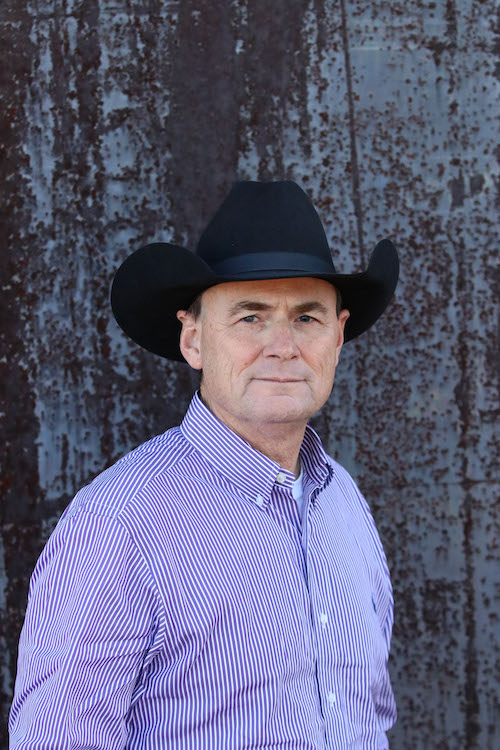Water Quality Professional Development Speakers
 Will Boyer
is an extension watershed specialist for K-State. He works primarily with Northeast Kansas watersheds, where he provides education and technical assistance to agricultural producers and other stakeholders. Will works one-on-one with livestock producers to find solutions to water quality concerns associated with their confined feeding and grazing operations using high-resolution mapping data and GIS software. Will has been with K-State since 1998, and in his current position since 2003. He holds a Bachelor of Arts degree in biology from Chadron State College in Nebraska, and a master’s degree in environmental planning and management from K-State.
Will Boyer
is an extension watershed specialist for K-State. He works primarily with Northeast Kansas watersheds, where he provides education and technical assistance to agricultural producers and other stakeholders. Will works one-on-one with livestock producers to find solutions to water quality concerns associated with their confined feeding and grazing operations using high-resolution mapping data and GIS software. Will has been with K-State since 1998, and in his current position since 2003. He holds a Bachelor of Arts degree in biology from Chadron State College in Nebraska, and a master’s degree in environmental planning and management from K-State. |
|
Jeff worked for K-State for many years previous to KCARE as an Agricultural Extension Agent in Greenwood County. He attended Colorado State University, where he earned both a Bachelor of Science degree in Range-Forest Management and a Master’s Degree in Range Science, specializing in range animal nutrition. |
|
|
|
|
|
|
|
Ron Graber is an Extension Watershed Specialist for watersheds in central Kansas. As part of his role, Ron coordinated the development, assessment and planning phases of the Watershed Restoration and Protection Strategies (WRAPS) plan for the Little Arkansas River, the Smoky Hill River and Upper Timber Creek. His primary focus as a watershed specialist is to educate local citizens about non-point source pollution issues and motivate those citizens to implement water quality restoration and protection actions. Ron works with livestock producers, regardless of operation size, to conduct environmental assessment and provide assistance in identifying management options best suited for their individual operation. He also assists growers in water quality protection by providing information on best management practices (BMPs) for crop production as it relates to water quality. Ron is a K-State graduate, holding both a Bachelor of Science degree and a master’s degree in Agriculture. Prior to his work as a watershed specialist, Ron was a County Extension Agent for K-State Research and Extension in both Osage and Harvey counties. He has worked as a watershed specialist since 2000. |
|
|
|
|
|
|

Rod Schaub is a graduate of K-State with a Bachelor of Science degree in Animal Science. Rod has served as an extension agent for thirty years all of which have been in the Lyndon Office, first for Osage County and currently as the livestock agent in Frontier District. |
 Elizabeth Smith
has been at the Kansas Department of Health and Environment since 2005. She has a B.S. in Biology and a Ph.D. in Entomology from the University of Kansas. She currently oversees several environmental monitoring programs that track the health of streams and lakes in Kansas, including the Harmful Algal Bloom response program. In addition, she serves as data manager for the surface water monitoring unit and general editor of the state's biennial Integrated Water Quality Assessment report.
Elizabeth Smith
has been at the Kansas Department of Health and Environment since 2005. She has a B.S. in Biology and a Ph.D. in Entomology from the University of Kansas. She currently oversees several environmental monitoring programs that track the health of streams and lakes in Kansas, including the Harmful Algal Bloom response program. In addition, she serves as data manager for the surface water monitoring unit and general editor of the state's biennial Integrated Water Quality Assessment report. |
 A.J. Tarpoff
has worked and served the beef industry from every aspect of production from pasture to plate. He attended Kansas State University earning his B.S. from the Animal Sciences and Industry department, followed by his D.V.M., and M.S. degrees from the College of Veterinary Medicine. Following graduation in 2012, he practiced feedlot production medicine in Alberta, Canada. In 2016 he returned to the Department of Animal Sciences and Industry at Kansas State University to serve as an Assistant Professor and the Beef Extension Veterinarian. A.J. has a 70% extension, 20% research, and 10% teaching appointment. He works closely with producers, practicing veterinarians, and members of industry to bring relevant extension and education that improves cattle health and the productivity of the beef industry. A.J. Tarpoff
has worked and served the beef industry from every aspect of production from pasture to plate. He attended Kansas State University earning his B.S. from the Animal Sciences and Industry department, followed by his D.V.M., and M.S. degrees from the College of Veterinary Medicine. Following graduation in 2012, he practiced feedlot production medicine in Alberta, Canada. In 2016 he returned to the Department of Animal Sciences and Industry at Kansas State University to serve as an Assistant Professor and the Beef Extension Veterinarian. A.J. has a 70% extension, 20% research, and 10% teaching appointment. He works closely with producers, practicing veterinarians, and members of industry to bring relevant extension and education that improves cattle health and the productivity of the beef industry. |
 Jeff Davidson
Jeff Davidson Steve Ensley
Steve Ensley Scott Fritz
Scott Fritz Herschel George
Herschel George 
 Jody Holthaus
Jody Holthaus
 Charlie Lee
Charlie Lee Stacie Minson
Stacie Minson